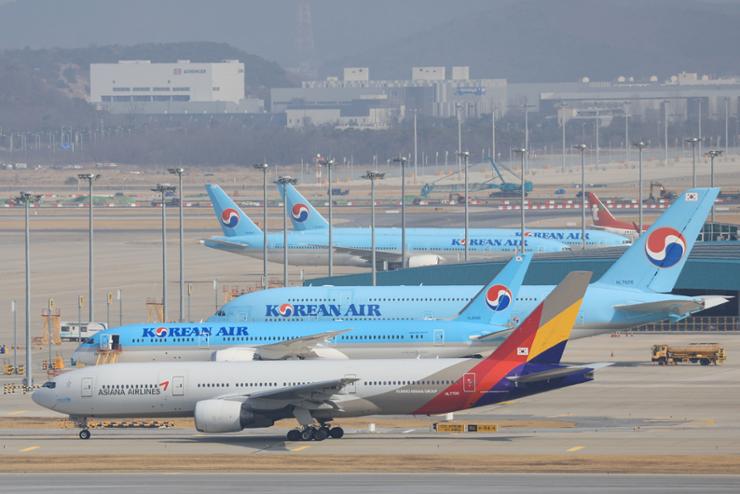


Korean Air’s much awaited and discussed acquisition of Asiana Airlines is nearing conclusion after the European Union's (EU) competition authority granted approval for the merger.
According to the South Korea’s flag carrier, the European Commission (EC) completed the long pending review of Korean Air’s fulfillment of all required conditions to acquire cash-strapped Asiana.
The approval now paves further path for the long-awaited launch of the mega carrier, as the U.S. Department of Justice (DOJ) is expected to conclude its review of the deal and grant approval in line with the EC's decision.
Upon merger, the two airlines will be operated separately for the next two years, during which Korean Air will normalize Asiana’s financial condition and relocate workers.
The combined entity that will be launched at a later stage, is set to become world’s seventh-largest mega carrier in terms of passenger volume. As of the end of October, Korean Air and Asiana Airlines collectively operated 203 passenger jets, with a total of 35 cargo aircraft during the same period.
After years of deliberation and investigation to ensure fair competition, the European Commission’ anti trust body finally took a decision to approve the merger of Korean Air and Asiana.
While reviewing the application for the acqusition, the EC worked on two parts, while the first part studied the competitive impacts of the merger; the second part looked into the remedy for that, and its effectivity.
During the review period, the merger case took the EC to discover that the air cargo business could face a “competition problem”.
To avoid the monopoly in business, EC had to separate passenger and combination carriers from pure freighter operators, and then the integrators.
Initially, it looked as if there were a lot of competing carriers, both in passenger and cargo, suggesting there shouldn’t be a problem. But on closer inspection, the EC realised there weren’t enough strong operators between the EU and South Korea.
The EC started assessing into two flights in the review process, and started to find that options were limited for the freight market, in part, because the capabilities of the carriers on the route were very different.
In Korean Air and Asiana operations, the EC further discovered that they had high frequencies and high quality; but the competition from other carriers were not as strong, giving KAL and Asiana the edge after the merger.
In February this year, the EC granted conditional approval, asking Korean Air to meet two preconditions: the operation of a replacement carrier on four overlapping European routes and the sale of Asiana’s cargo business.
This was challenging, however, in response, Korean Air has designated T’way Air as the ‘passenger remedy carrier’ for the European routes, with commitments to provide operational support, including aircraft, flight crew and maintenance services.
For the freight business, Air Incheon has been approved as the purchaser of Asiana Airlines’ freighter arm, Asiana has 13 Boeing B747F freighters in its fleet.
Korean Air said it expected to complete the transaction next month, having submitted the EC approval to the US Department of Justice.
Post merger, the two airlines’ low-cost carriers (LCC) will also be merged with some delay. Both carriers operate Jin Air, Air Busan and Air Seoul as their LCC subsidiaries. When the three subsidiaries are integrated, the merged entity will rise to become the largest LCC here by sales.
About the employee retention policy, Korean Air has already pledged not to implement any compulsory job cuts during the acquisition of Asiana.
However, on the customer benefits, Korean Air is facing a dilemma over how to merge the mileage points from both carriers.
While, the mileage points of the two carriers are unlikely to be integrated at a one-to-one ratio, as Korean Air’s points are generally valued higher in the market.
At the same time, Asiana’s customers will likely complain if their mileage points are valued significantly less in the merger. It will be challenging to find a fair middle ground.
You may like to read....
